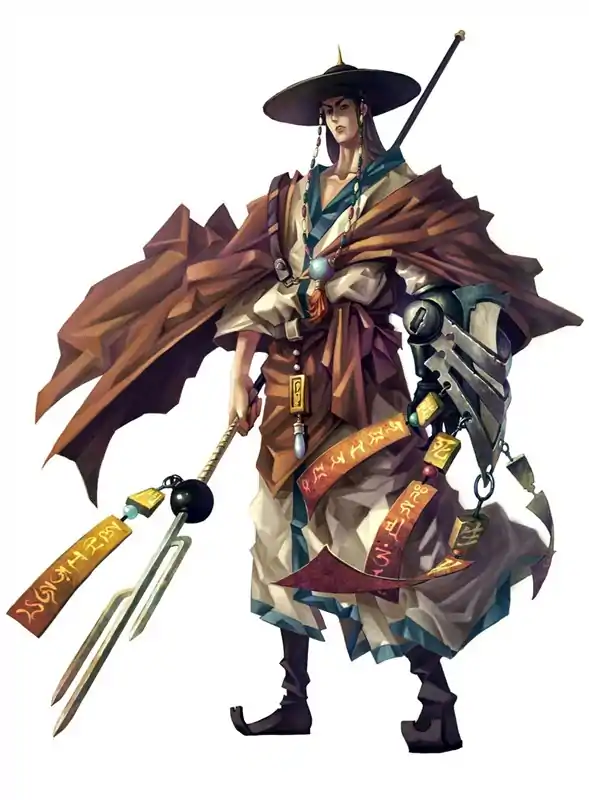Way of the Long Blade (5e Subclass)
The Monastic Tradition of the Long Blade focuses on combat discipline with heavy melee weapons. Such weapons require more caution and control, but with extended practice, these monks are deadly in combat.
 |
|---|
| A Long Blade Monk. |
The Long Blade
Upon following this Monastic Tradition at level 3, you gain proficiency in any martial melee weapon with the heavy property, and any exotic variation of such weapons (naginata, kanabo, odachi, etc.). Such weapons are considered monk weapons for you, and any critical hit with a heavy melee monk weapon restores 1 ki, up to your ki point maximum.
Unarmored Defense
When not wearing no armor and not wielding a shield, your AC equals 10 + your Dexterity modifier + your Wisdom or Strength modifier, whichever is higher.
Balanced Weight
At level 6, your heavy melee attacks become more dangerous when augmented through your ki. You may select one of the following effects when you make an attack with a heavy melee monk weapon, expending 2 ki when doing so:
- Gain advantage on an attack roll.
- Make an additional attack against a creature adjacent to the target, as long as it is in range, adding your wisdom modifier to the attack roll (min. +1). (1x/per attack)
- Force a hit on a creature of size large or smaller to make a Str save against your ki save DC. On a failure, the target is knocked prone and takes 1d8 bludgeoning damage.
Heavy Ki
At level 6, any melee attack made with a heavy monk weapon is considered magical for the purposes of overcoming resistances and immunities.
Whirlwind Attack
At level 11, You can use your action to make a melee attack against any amount of creatures within 5 feet of you, with a separate attack roll for each target. Using this ability, each attack costs 2 ki.
Focused Weight
At level 17, when wielding a heavy monk weapon, you may add your wisdom modifier to damage rolls made with that weapon.
Back to Main Page → 5e Homebrew → Character Options → Subclasses